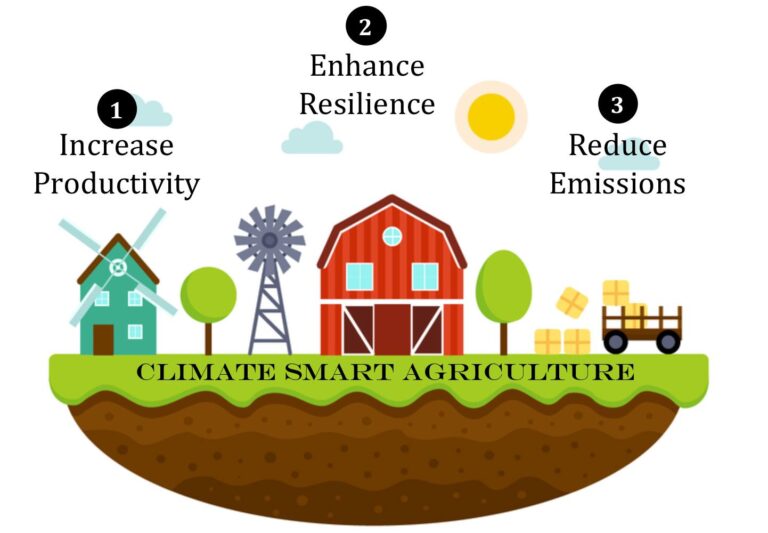Introduction to Climate-Smart Farming
Climate-smart farming is an innovative approach that aims to increase productivity while reducing greenhouse gas emissions. In Bangladesh, where the majority of the population relies on agriculture, this method is becoming a vital strategy to combat poverty and environmental challenges.
The Importance of Agriculture in Bangladesh
Agriculture represents a significant part of Bangladesh’s economy, contributing to around 14% of its GDP. Despite facing extreme climate events, the sector employs about 40% of the workforce, highlighting its critical role in sustaining livelihoods.
Challenges Faced by Farmers
Farmers in Bangladesh confront numerous challenges, including unpredictable rainfall, flooding, and soil degradation. These issues not only threaten food security but also push vulnerable communities deeper into poverty.
Climate Change Impacts
Climate change has exacerbated the existing vulnerabilities in agricultural practices. Farmers are increasingly experiencing the effects of rising temperatures and altered weather patterns, which complicates traditional farming methods.
Implementing Climate-Smart Agriculture
Adopting climate-smart agriculture techniques can significantly enhance resilience and productivity. This includes practices such as crop diversification, integrated pest management, and the use of drought-resistant crop varieties.
Success Stories in Bangladesh
Several communities have successfully implemented climate-smart practices, resulting in increased yields and improved food security. These success stories provide valuable lessons and inspire other farmers to adopt similar approaches.
The Role of Government and NGOs
Government initiatives and support from non-governmental organizations are crucial in promoting climate-smart farming. These entities provide training, resources, and financial assistance to farmers, enabling them to transition towards sustainable practices.
Education and Awareness Programs
Education plays a vital role in the adoption of climate-smart farming methods. Awareness programs that highlight the benefits of sustainable practices can empower farmers to make informed decisions that benefit both their livelihoods and the environment.
Conclusion
Climate-smart farming offers a promising path out of poverty for many in Bangladesh. By embracing innovative agricultural practices, farmers can enhance their resilience to climate change while improving their economic prospects. For more information, check out this resource on climate-smart farming.

